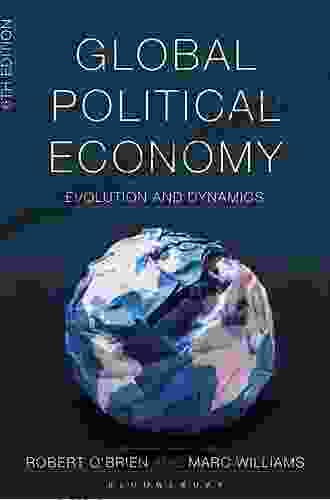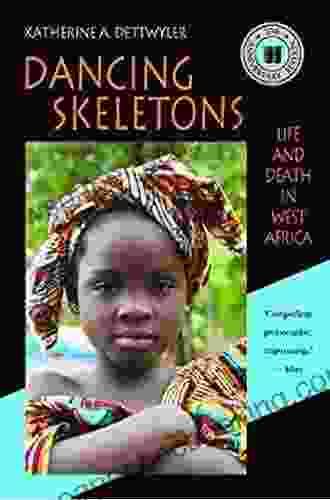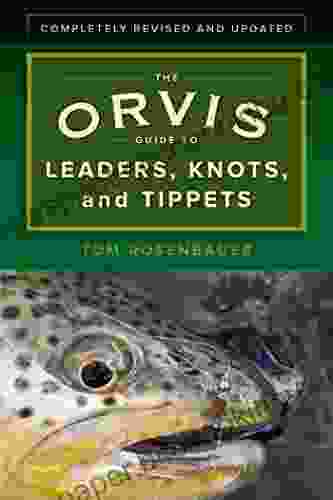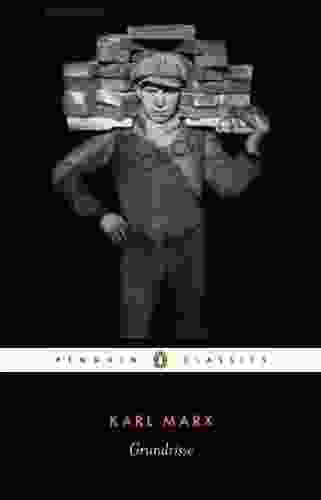Laying the Foundation for Understanding Political Economy: A Comprehensive Analysis of Karl Marx's "Foundations of the Critique of Political Economy"

In the annals of economic thought, Karl Marx stands as a towering figure whose ideas have profoundly shaped our understanding of capitalism and its impact on society. His magnum opus, "Foundations of the Critique of Political Economy," is a cornerstone of Marxist theory, providing a rigorous analysis of the inner workings of the capitalist system and its inherent contradictions. This comprehensive article will delve into the depths of Marx's seminal work, exploring its key concepts and their enduring relevance in the contemporary world.
The Labor Theory of Value
At the core of Marx's critique of political economy lies his labor theory of value. Marx argued that the value of a commodity is determined not by its utility or scarcity, but by the amount of socially necessary labor time required to produce it. This revolutionary concept challenged the prevailing notion of value based on supply and demand, and instead emphasized the role of labor in creating economic value.
4.7 out of 5
| Language | : | English |
| File size | : | 2184 KB |
| Text-to-Speech | : | Enabled |
| Screen Reader | : | Supported |
| Enhanced typesetting | : | Enabled |
| Word Wise | : | Enabled |
| Print length | : | 914 pages |
Surplus Value and Exploitation
Building upon the labor theory of value, Marx introduced the concept of surplus value. He argued that under capitalism, workers are paid only a portion of the value they create, with the剩余价值被资本家占为己有。This surplus value represents the unpaid labor of the working class and is the source of capitalist profit. Marx viewed this exploitation as a fundamental contradiction within capitalism, leading to the impoverishment of the working class and the accumulation of wealth in the hands of a few.
The Class Struggle
Marx's analysis of capitalism also highlighted the inherent class struggle between the bourgeoisie (capitalists) and the proletariat (working class). He argued that the interests of these two classes are fundamentally opposed, with the bourgeoisie seeking to maximize profits and the proletariat seeking fair wages and working conditions. This class struggle, Marx believed, is the driving force behind social and economic change.
The Commodity Fetishism
Another key concept in Marx's work is commodity fetishism. He observed that in capitalist societies, commodities (goods and services) take on a life of their own, obscuring the social relations and labor that went into their production. Consumers become fixated on the physical attributes and market value of commodities, rather than recognizing their true nature as products of human labor. This fetishism, Marx argued, alienates workers from their own劳动成果, and contributes to the mystification of capitalism.
The Role of the State
Marx also analyzed the role of the state in capitalist societies. He argued that the state is not a neutral arbiter, but rather an instrument of class rule, serving the interests of the bourgeoisie. The state's laws, policies, and institutions are designed to maintain the capitalist system and suppress any threats to its continued existence.
Key Themes and Significance
"Foundations of the Critique of Political Economy" is a seminal work that has had a profound impact on the fields of economics, sociology, and political science. Key themes running throughout the book include:
- The importance of understanding the social relations of production in analyzing economic systems. - The role of class struggle in driving social and economic change. - The mystifying and alienating effects of commodity fetishism. - The state's function as a tool of class domination.
Contemporary Relevance
Despite being written over a century ago, "Foundations of the Critique of Political Economy" remains highly relevant in the contemporary world. The book's insights into the nature of capitalism, exploitation, and class struggle continue to resonate in today's globalized economy.
The widening income gap, the erosion of workers' rights, and the increasing concentration of wealth in the hands of a few are all issues that Marx foresaw and analyzed in his work. By understanding the fundamental dynamics of capitalism as outlined in "Foundations of the Critique of Political Economy," we can better grasp the challenges and contradictions facing our societies today.
Karl Marx's "Foundations of the Critique of Political Economy" is a foundational text that has revolutionized our understanding of economics and its impact on society. Its rigorous analysis of capitalism's inner workings, its exploration of key concepts such as the labor theory of value, surplus value, and class struggle, and its emphasis on the role of social relations in shaping economic outcomes have made it a cornerstone of Marxist theory and a seminal work in the social sciences.
By delving into the depths of this seminal work, we gain a deeper appreciation for the complexities of capitalism, its inherent contradictions, and its enduring impact on our world. "Foundations of the Critique of Political Economy" remains an indispensable resource for anyone seeking to understand the foundations of political economy and its relevance to the challenges and opportunities of the 21st century.
4.7 out of 5
| Language | : | English |
| File size | : | 2184 KB |
| Text-to-Speech | : | Enabled |
| Screen Reader | : | Supported |
| Enhanced typesetting | : | Enabled |
| Word Wise | : | Enabled |
| Print length | : | 914 pages |
Do you want to contribute by writing guest posts on this blog?
Please contact us and send us a resume of previous articles that you have written.
 Book
Book Novel
Novel Page
Page Chapter
Chapter Text
Text Story
Story Genre
Genre Reader
Reader Library
Library Paperback
Paperback E-book
E-book Magazine
Magazine Newspaper
Newspaper Paragraph
Paragraph Sentence
Sentence Bookmark
Bookmark Shelf
Shelf Glossary
Glossary Bibliography
Bibliography Foreword
Foreword Preface
Preface Synopsis
Synopsis Annotation
Annotation Footnote
Footnote Manuscript
Manuscript Scroll
Scroll Codex
Codex Tome
Tome Bestseller
Bestseller Classics
Classics Library card
Library card Narrative
Narrative Biography
Biography Autobiography
Autobiography Memoir
Memoir Reference
Reference Encyclopedia
Encyclopedia Monica Loughman
Monica Loughman Kevin Asla
Kevin Asla Phil Demuth
Phil Demuth Karen Dillon
Karen Dillon Kal Penn
Kal Penn Julie Gilbert Pollard
Julie Gilbert Pollard Mike Stanton
Mike Stanton Scott Mckneely Blanchard
Scott Mckneely Blanchard Judith S Beck
Judith S Beck Juliet Sullivan
Juliet Sullivan Sir John Franklin
Sir John Franklin Juju Sundin
Juju Sundin Julie Lythcott Haims
Julie Lythcott Haims Neeli Cherkovski
Neeli Cherkovski Shirley Soltesz Steiner
Shirley Soltesz Steiner Julie Berry
Julie Berry Karin Slaughter
Karin Slaughter Shannon Allen
Shannon Allen Sadaf Farooqi
Sadaf Farooqi Kimberly Smith Lukhard
Kimberly Smith Lukhard
Light bulbAdvertise smarter! Our strategic ad space ensures maximum exposure. Reserve your spot today!

 Henry Wadsworth LongfellowWhen Findus Was Little And Disappeared, Findus And Pettson: A Tale of...
Henry Wadsworth LongfellowWhen Findus Was Little And Disappeared, Findus And Pettson: A Tale of...
 Fred FosterThe Gulf States in International Political Economy: International Political...
Fred FosterThe Gulf States in International Political Economy: International Political...
 Bernard PowellReckoning With Racism And The Heritage Of The South: A Book That Will Change...
Bernard PowellReckoning With Racism And The Heritage Of The South: A Book That Will Change... Bill GrantFollow ·19.4k
Bill GrantFollow ·19.4k Jonathan FranzenFollow ·3.9k
Jonathan FranzenFollow ·3.9k Gerald ParkerFollow ·9.8k
Gerald ParkerFollow ·9.8k Terence NelsonFollow ·4.4k
Terence NelsonFollow ·4.4k Shaun NelsonFollow ·5.5k
Shaun NelsonFollow ·5.5k F. Scott FitzgeraldFollow ·13.7k
F. Scott FitzgeraldFollow ·13.7k Herman MelvilleFollow ·2.7k
Herman MelvilleFollow ·2.7k Ernest HemingwayFollow ·15.3k
Ernest HemingwayFollow ·15.3k

 Drew Bell
Drew BellLife and Death in West Africa: A Groundbreaking Account...
A Journey Through...

 Stanley Bell
Stanley BellMaster the Art of Fly Fishing Line Management: A...
Are you an avid fly...

 Ernest Powell
Ernest PowellUnleash Your Entrepreneurial Spirit: A Comprehensive...
In the competitive...

 Derrick Hughes
Derrick HughesMaster Your Ride: The Ultimate Guide to Road Bike...
Are you ready to elevate your cycling...

 Camden Mitchell
Camden MitchellUnveiling the Enchanting World of American Royals III:...
Embark on a Captivating Royal Saga: American...

 Richard Simmons
Richard SimmonsUnveiling the Secrets of Fly Tying: A Comprehensive...
In the realm of...
4.7 out of 5
| Language | : | English |
| File size | : | 2184 KB |
| Text-to-Speech | : | Enabled |
| Screen Reader | : | Supported |
| Enhanced typesetting | : | Enabled |
| Word Wise | : | Enabled |
| Print length | : | 914 pages |






